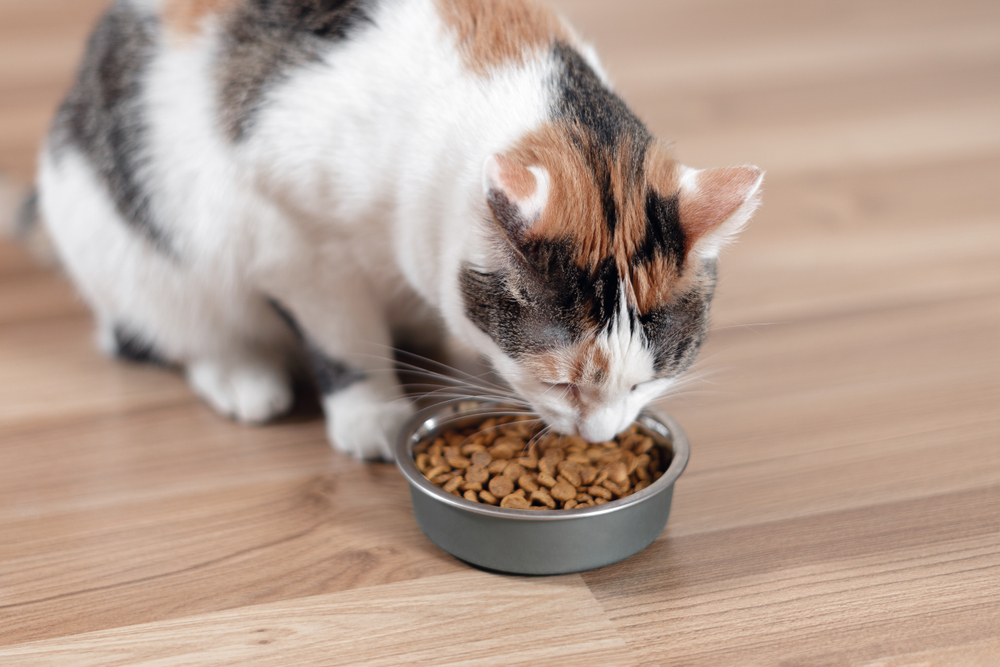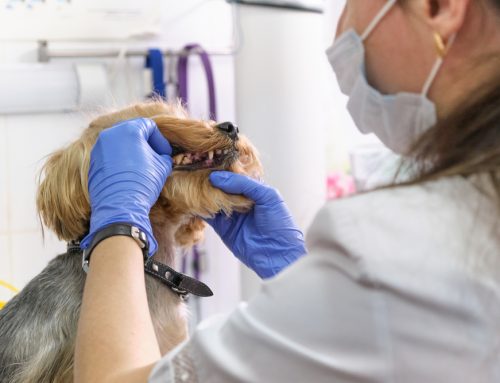“You are what you eat” holds true for all species, including cats and dogs. One of the most important aspects of your pet’s care is nutrition, but so much information is available online that separating fact from fiction can be a challenge. Our Westerville Veterinary Clinic team explores common myths and truths about pet nutrition to help you make informed decisions for your furry friend’s diet.
Myth: All commercial pet foods are the same
Truth: Commercial pet foods are not created equal. While some products are high-quality and nutritionally balanced, others may contain fillers, artificial preservatives, and low-quality ingredients. Read labels carefully, choose pet foods that list meat as the first ingredient, and avoid artificial additives. Consulting with our Westerville Veterinary Clinic veterinarian for recommendations for your pet’s specific needs is also a wise move.
Myth: Grain-free diets are healthier for pets
Truth: The trend toward grain-free diets for pets has gained in popularity, but they are not always necessary or beneficial. Grains such as rice, oats, and barley are excellent essential nutrient sources. Some pets may have grain allergies, but this is relatively rare. True food allergies, which are uncommon in pets, are typically caused by protein sources, such as chicken, lamb, fish, dairy, and eggs. Removing grains from your pet’s diet can potentially lead to heart disease, a link that the Food and Drug Administration (FDA) is still investigating.
Myth: Homemade diets are superior to commercial diets
Truth: While you know exactly what is in your pet’s diet when you prepare homemade meals, you also must understand pet nutrition to avoid deficiencies or imbalances that can lead to health issues. Pets have specific dietary needs that differ from people and each other. If you prefer to prepare homemade meals, you need a veterinary nutritionist to help create balanced recipes.
Myth: Raw diets are healthier
Truth: Your pet has many centuries of domestication separating them from their wild ancestors and their raw diets. While such diets may provide some health benefits, they are not without risks, including bacterial contamination (e.g., Salmonella, E. coli) and nutrient imbalances. These diets also require careful handling, especially in homes with small children or immunocompromised people, and must be formulated precisely to be safe and nutritious.
Myth: Table scraps are fine for pets
Truth: Feeding table scraps may seem harmless, but many human foods are dangerous for pets. Foods like chocolate, grapes, onions, and certain artificial sweeteners (e.g., xylitol) can be toxic, and feeding pets from the table can encourage begging and lead to obesity. Stick to pet-specific treats and foods to ensure their safety and health.
Myth: Pets need variety in their diet
Truth: Unlike people, pets thrive on consistency. Frequently changing their food can lead to digestive upset and identifying food intolerances or allergies can be challenging. Once you find a high-quality, balanced diet that your pet enjoys and digests well, stick with it unless our veterinarian advises otherwise.
Myth: Senior pets need less protein
Truth: A common misconception is that senior pets need less protein—older pets actually require more high-quality protein to maintain muscle mass and overall health. Focus on providing easily digestible, high-quality protein sources appropriate for senior pets rather than reducing their protein. If your pet develops chronic renal failure, their protein requirements may change, so discuss the best diet for your senior pet with our veterinarian.
Myth: Dry food is better for dental health

Truth: While chewing dry food can help reduce plaque, it’s no substitute for regular dental care. Most dry foods do not significantly impact pet dental health, because traditional kibble shatters when crunched, which provides minimal “scrubbing” action. Regular toothbrushing, dental chews, and professional cleanings are more effective for maintaining your pet’s oral health.
The world of pet nutrition can be confusing, but understanding the myths and truths can help you make better choices for your furry friend. Always prioritize high-quality, balanced diets, and consult our Westerville Veterinary Clinic veterinarian before significantly changing your pet’s diet.







Leave A Comment